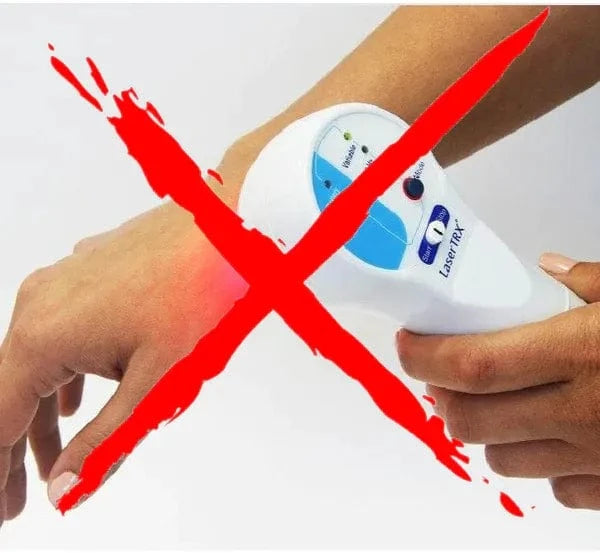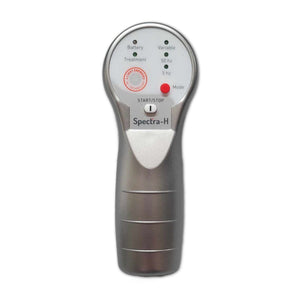
Low Level Laser Contraindications - 7 Situations Where Cold Laser Therapy Should NOT Be Used
In general, side effects and contraindications of low-level laser therapy are sparse. That is one reason why this therapy is so safe to use at home. There are, however, a few situations where laser therapy should not be used. It’s important to be informed to protect the safety of the whole family.
Below is a list of situations where we would want to avoid direct laser application. If you have any concerns, feel free to reach out to our community or discuss the option with a doctor who is experienced in low-level laser therapy.
The following information is a summary and review based on Dr. Candy’s professional experience and recommendations. Any summary or statement has not been provided nor influenced by the manufacturer.

| Low Level Laser Contraindications | Brief Description |
| Thyroid Gland | Thyroid dysfunction is complicated and each patient is different. Manipulation of the thyroid hormone cycle can affect metabolism, resulting in weight gain or loss. |
| Eyes | Treatments around the eye, eyelids, and eyebrows should be avoided to prevent laser damage to the retina. If this happens, vision changes and blindness could be the result. |
| Benign Cancer / Tumors | Avoid all lumps, bumps, masses, and growths. The laser has the potential to revitalize the trouble cells and cause the tumor to grow bigger. I have had cases where the non-invasive healing value is greater than the risk of helping a tumor. |
| Pregnancy / Lactating | In this situation, research is lacking. Due to this, we do not fully know if the therapy would have an effect on the child. As a precaution, laser therapy is contraindicated in pregnant or lactating mothers. |
| Epileptic Seizures | Flashing lights in the visible light spectrum are known to stimulate seizures. |
| Malignant or Cancerous Tumors | Stimulated healing from the laser can cause the tumor to be stronger. Studies prove negative effects, such as rapid tumor growth or spreading to other body locations. |
| Tattoos | A handful of adverse reactions have been documented in relation to tattoos. Laser therapy over a new tattoo can result in allergic reactions to ink pigments. Laser tattoo removal also carries this risk. |
Want even more information about this effective and non-invasive treatment? Check more information below and Dr. Candy's favorite Low-Level-Laser!





